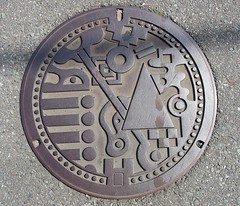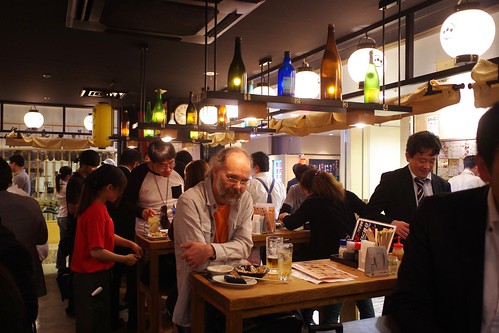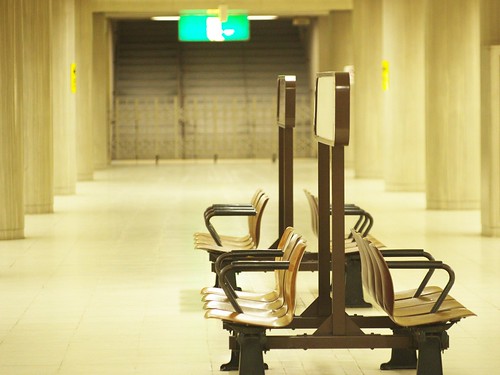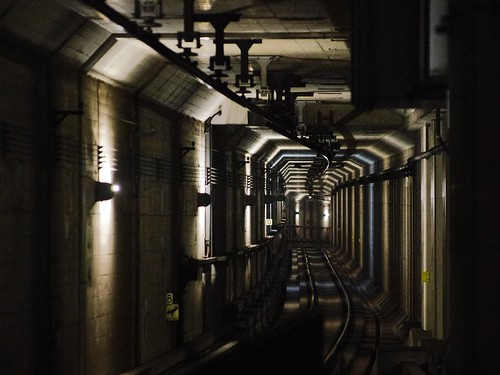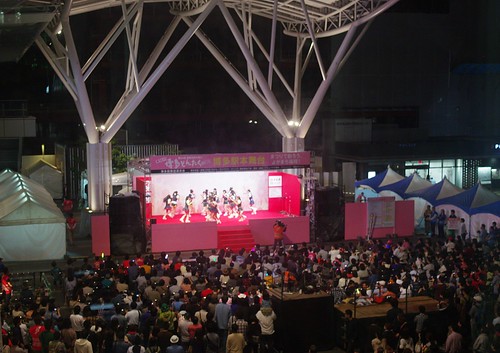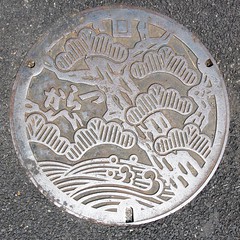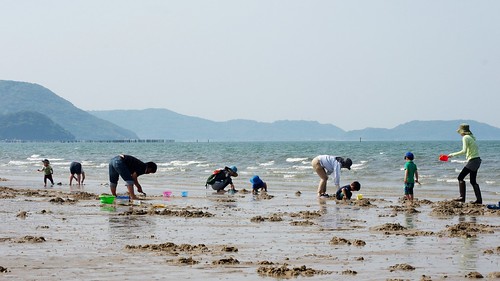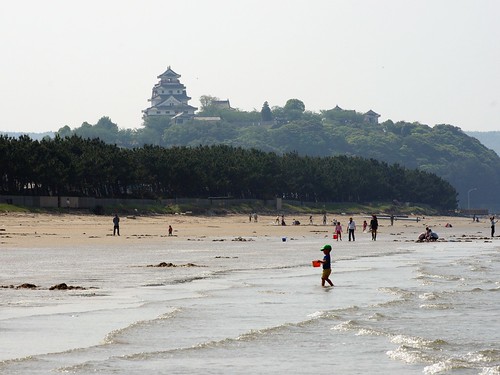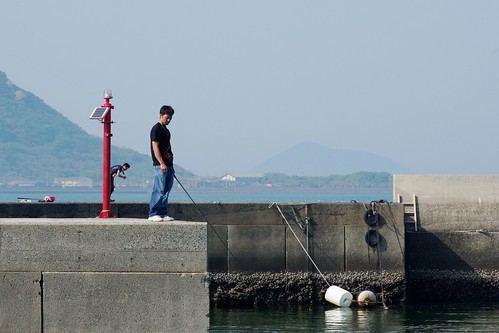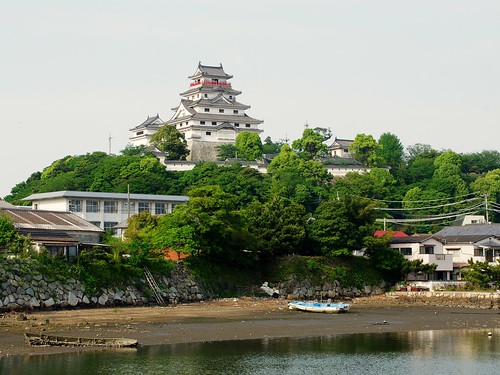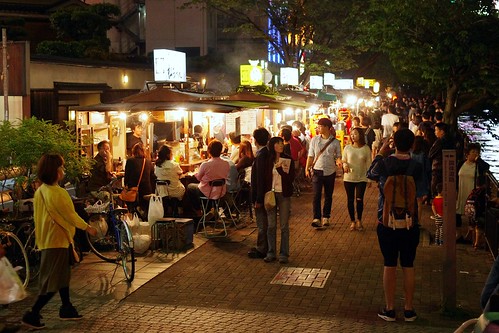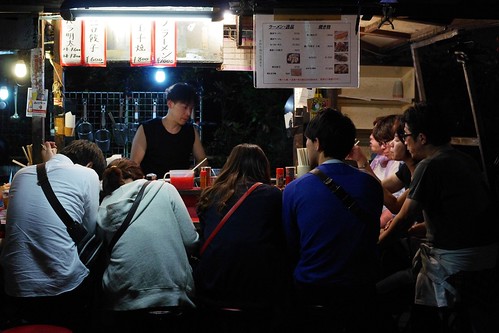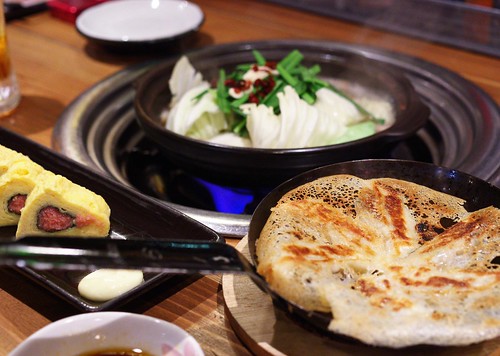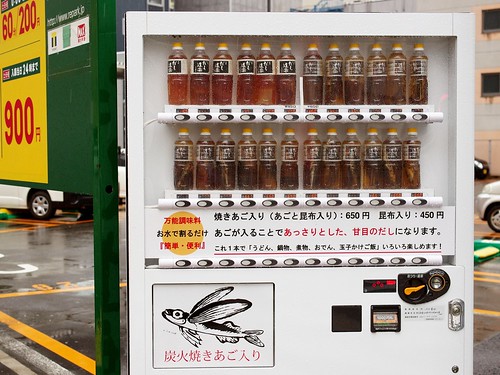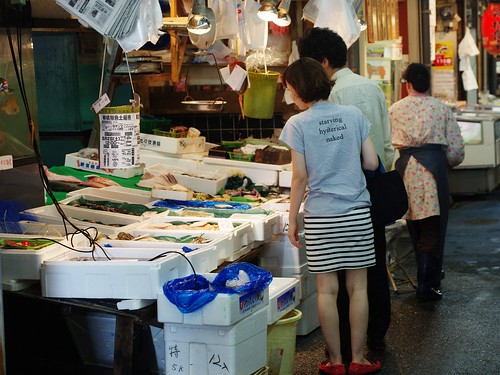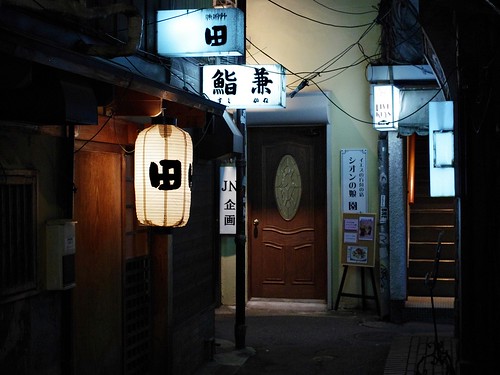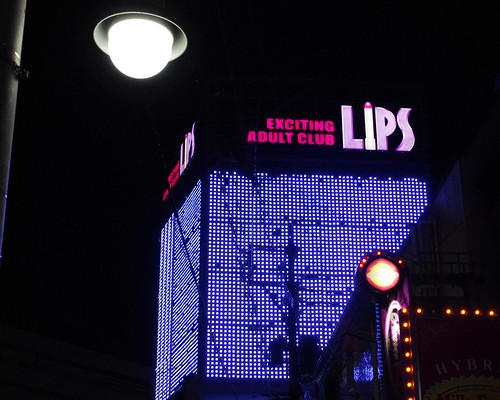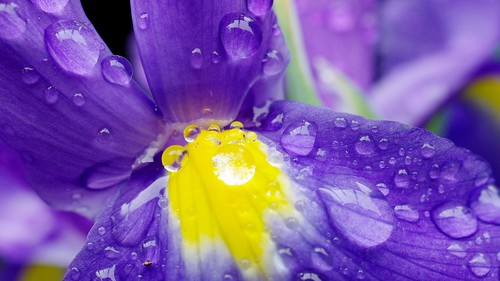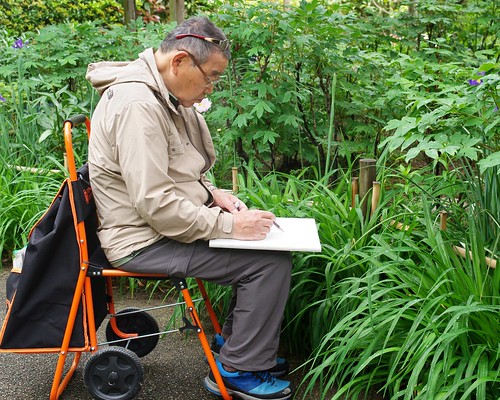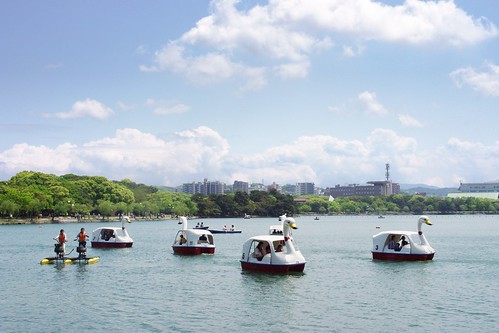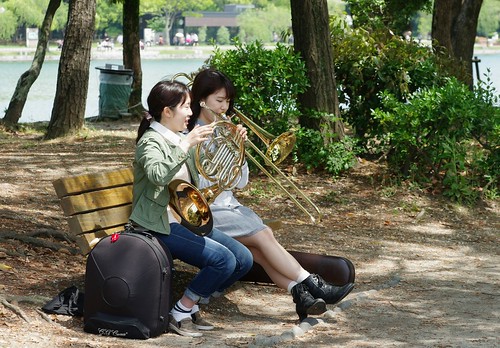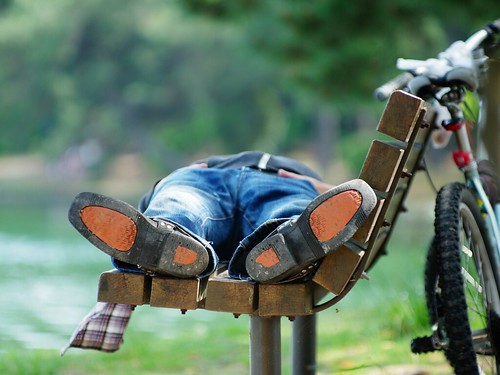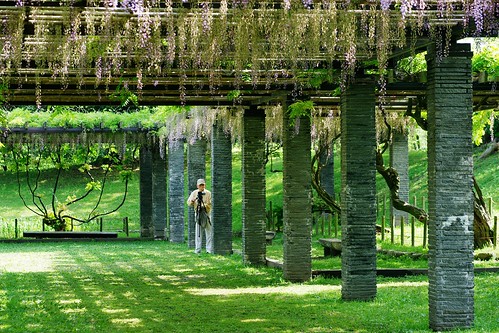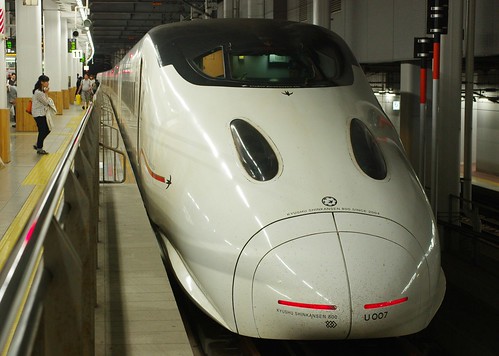Golden Week saw us heading to Fukuoka, out toward the northern end of Kyūshū. It's not too far — just 2.5 hours on the train — and reputed to be a very pleasant, relaxed city, famous for its food. Besides, I have never set foot on Kyūshū in my life, so it was time we went(1). The plan was to spend three relaxing, quiet nights there right at the beginning of Golden Week.
Japan is decently large, but transportation is excellent, so most of the country is close if you live near a major city. From Osaka you can reach pretty much all of Japan within three-four hours or so, using the Shinkansen or low-cost airlines. We can leave on a Friday evening after work and be anywhere by late evening, then return home Sunday night, leaving two full days of vacation on a normal weekend.
Japan is decently large, but transportation is excellent, so most of the country is close if you live near a major city. From Osaka you can reach pretty much all of Japan within three-four hours or so, using the Shinkansen or low-cost airlines. We can leave on a Friday evening after work and be anywhere by late evening, then return home Sunday night, leaving two full days of vacation on a normal weekend.
I met Ritsuko at the station right after work and only ate a little before boarding the train. Pretty hungry by the time we arrived so we had a bite at a standing izakaya at the Hakata station.
Fukuoka is plenty large enough to have a subway system. It's uncommonly well-designed I think; it's modern and well-maintained, but retains a neat retro aesthetic with wooden benches and cream stone tile.
We were looking for peace and quiet, but that didn't take Hakata Dontaku into account (Hakata is the largest ward in Fukuoka). It's a summer festival, held — unbeknowst to us — every year in Fukuoka, right at the beginning of Golden Week. With about 2 million visitors it's one of the largest festivals in the country and Fukuoka, needless to say, is anything but calm and tranquil during those days. We did wonder why hotel rooms were so curiously hard to find when we booked the trip.
HKT48, an AKB48-spinoff performing at one festival scene. Note the glittering points of light in the audience as people record the event with their phones. This is the only festival-related shot I took.
Festival or not, we would have peace and quiet or kill ourselves trying. Fortunately it was quite easy. The festival itself is held only in part of the city center; stay away from that area and you have a surprisingly pleasant city and its surroundings to explore.
The first day we took a train down the coast for a day trip to Karatsu. It's a small town with a castle, a beautiful seaside landscape and nothing much else. The weather was great; sunshine but slightly hazy to take the edge off the light and the heat. It's a 45-minute ride, but that makes it sound farther than it really is. The train connects directly from the subway, and lets you see everything as you slowly pass by. It all feels like you've stumbled into a Miyazaki-movie.
The first day we took a train down the coast for a day trip to Karatsu. It's a small town with a castle, a beautiful seaside landscape and nothing much else. The weather was great; sunshine but slightly hazy to take the edge off the light and the heat. It's a 45-minute ride, but that makes it sound farther than it really is. The train connects directly from the subway, and lets you see everything as you slowly pass by. It all feels like you've stumbled into a Miyazaki-movie.
We took a walk to the seaside area from Higashi Karatsu station. After lunch we walked down to the beach. The tide was out, and most people were searching for shellfish in the sand. Big clams are grilled, and small ones are used to flavour miso soup.
Fukuoka is famous for its food — a major reason we picket it as a destination of course. Hakata ramen is a popular type of tonkotsu ramen, but it's also well known for mentaiko (pickled, salted fish roe - think "Kalles Kaviar" if you're Swedish) and motsunabe (hotpot made from tripe or offal).
The canal-side ramen stalls in Fukuoka are famous. Too famous — it's become a tourist trap. It was right around the time of the festival of course, but there were huge throngs of people along the river side. Anyplace you wanted to eat, you had to wait in line for 10-15 minutes or longer, and order your food beforehand.
Hakata ramen stall. You take a seat, and your ramen — assembled at great speed from ingredients cooked elsewhere — is shoved into your lap. Eat, then leave for the next one in line. The ramen? Not very good. The experience? Stressful and no fun. Go here for the pictures, but eat elsewhere. The famous ramen chains likewise had long lines of people, but we discovered that it's only true for the shops in the central district where all the tourists come. Get away from the center and the shops are quiet, peaceful and without waiting lines.
I thought I'd seen pretty much every kind of vending machine around by now. Apparently not; this one sells fish-based dashi, with or without a whole fish in it. I guess the manufacturer is located right in this neighbourhood, and the machine is a clever advertisement. The demand for street-side dashi can't be enough to make a profit.
Fukuoka feels very unhurried. People just aren't rushing around the way they do in Osaka. It's as if it's managed to become a big city (over 2 million people) without losing the sense of being a local town. Walking around is a lot of fun.
Another "interesting" t-shirt at a local market. It's a bit different from the normal word salad though; I suspect this may be an actual slogan, a band name or something like that.
The last day, still determined to avoid the festival, we first visited the Hakozakigu botanical gardens — at least in part because it was just down the road from the hotel. It's not a big garden but it's quite beautiful, with a large variety of flowering plants. The outside cafe was a pleasant spot for a break before leaving.
More close-up water drops. I like how some drops add enough magnification that you can clearly see the petal cell structure.
A fair amount of people around, including this sketching gentleman. I'm impressed by his glasses; I would never be able to keep them apart.
Ohori park is a large, varied park close to the city center, with a good-sized lake and a few islands in the middle. It's a wonderful spot to spend your free time, and many people do. There's cafes and restaurants along the north edge; you can walk around or sit and rest; jog, run and play at the playground; you can fish in the lake, or rent a paddle boat or water cycle.
Japanese have a problem. Many, many people play instruments — it's part of a well-rounded education — but most people also live in fairly tight quarters, close to their neighbours. Flutes, ukuleles and so on are quiet enough, and pianos, drums and guitars have electric versions. But where do you practice if you play the trombone, or the French horn? Public parks is the answer. You see this quite often.
Hanging wisteria. You couldn't turn around around here without bumping into wedding photographers taking wedding pictures of their clients.
This was not just a fun trip. Fukuoka was much more of a city than I expected it to be; big and bustling, but the pace was unhurried and pleasant, the city is beautiful and the food is delicious. It shows up in rankings of the most livable cities in the world, and it's easy to understand why.
#1 Actually I've never set foot on Shikoku or even Awajishima either and they're what - half an hour away? I see Awajishima from my desk every day, yet I've never been there. Ridiculous, I know.

